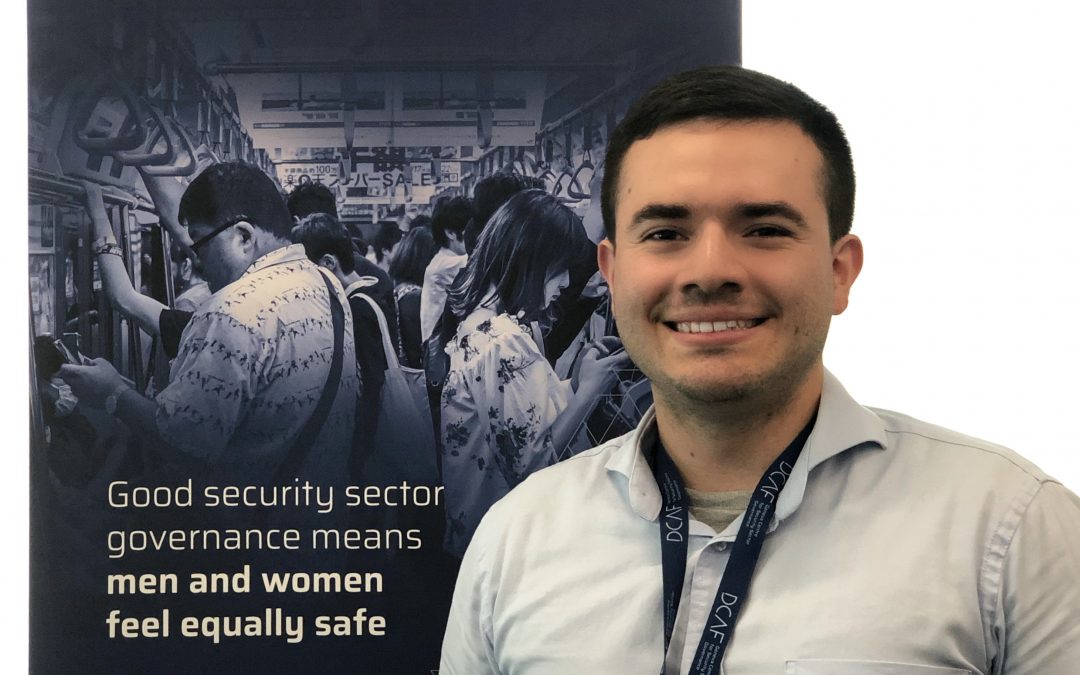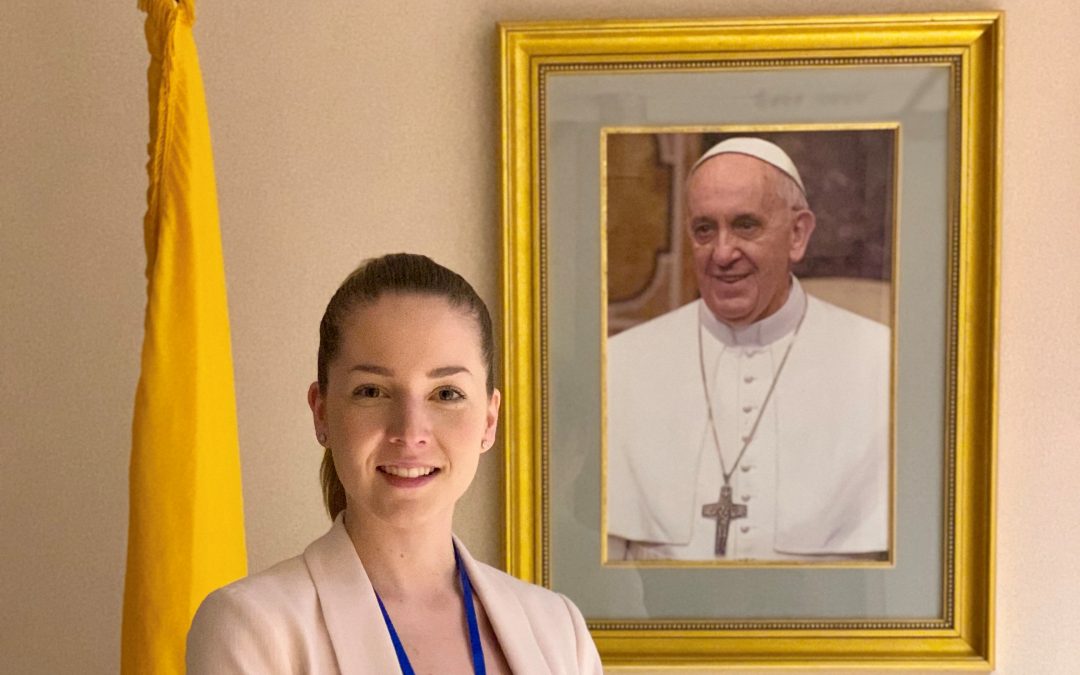
by Madison McHugh | Aug 28, 2019 | Graduate Students, Internship Experiences
My name is Emanuel Hernandez. I am a second-year graduate student pursuing an M.B.A. in Supply Chain Management/M.A. in International Relations dual-degree program at Seton Hall University. In the summer, I was selected as the School of Diplomacy’s Sergio Vieira de Mello Fellow, a fellowship program created in honor of a Brazilian UN diplomat who was killed in a bombing while working as the UN Secretary-General’s Special Representative in Iraq.
De Mello fellows are placed as research assistants in project-based work at the DCAF – Geneva Centre for Security Sector Governance for a duration of eight weeks. DCAF, an international foundation under Swiss law, is dedicated to improving the security of states and their populations within a framework of democratic governance, the rule of law, and respect for human rights. DCAF helps its partner states and international actors to improve the governance of their security sectors through inclusive and participatory reforms based on international standards and practices. The foundation currently has 63 member states and operations in more than 74 countries.
I interned for the Latin America & Caribbean (LAC) Unit within the Operations Department. As one of the newest units at DCAF, we had a small team, with only a head of division, two project coordinators, one financial officer, and two interns (including myself). Working in such a small team comes with both challenges and perks.
One of the main advantages of working in a small team was the one-on-one feedback and mentoring from my peers. We worked in a dynamic environment that required everyone in the team to be able to perform multiple tasks. During my time there, I prepared multiple research reports and concept notes to be used in funding proposals, translated and edited publications and legal documents for international cooperation projects, and prepared daily briefs on security sector news in DCAF’s focus countries in LAC. I also had the opportunity to improve my professional writing skills in Spanish.
However, being responsible for multiple tasks in a small team came with its own challenges. Sometimes, the workload exceeded the time available in a given day, so I needed to learn how to prioritize tasks effectively to make sure that I got everything accomplished at the right time.
Participating in the internship reassured me of my choice to pursue a dual-degree program. My background in international relations was essential for processing data, understanding complex issues, and delivering information concisely in research reports. My education in business administration, on the other hand, was particularly useful in understanding financial statements and legal documents needed to implement and monitor international projects. I would certainly recommend this internship to anyone that is interested in international project-based work.
Geneva is a vibrant city during the Summer, and DCAF is located at the heart of international Geneva. While my objective had always been to work in the New York/Washington area, this experience opened my eyes to the professional opportunities in Geneva, which serves as a hub for hundreds of international organizations, multinational companies, and non-governmental organizations. Based on my experience with DCAF, I will be keeping an eye on jobs in Geneva when I begin applying for full-time positions.

by Madison McHugh | May 29, 2019 | Graduate Students, Internship Experiences
My name is Roxane Heidrich. I am a second-year graduate student in the Diplomacy and International Relations Program, specializing in Global Negotiations and Conflict Management and International Security. I completed an internship at the Permanent Observer Mission of the Holy See to the United Nations in New York.
My goal upon graduation is to work in the field of mediation of international conflicts and facilitate dialogue between stakeholders. These conflicts also possess a security dimension prior to peace talks, and I was interested in learning what arrangements need to be present on the ground before one can begin the mediation process. The Holy See matched these interests of mine in their dedication to peace and reconciliation as a religious organization. Such organizations are often at the forefront of mediation efforts, brokering ceasefires and peace agreements and playing a major role in bringing together rival parties and negotiating a successful and lasting peace.
In this sense, my decision to pursue this internship followed my understanding of mediation as an activity that needs to be carried out with the principles of neutrality, genuine engagement, and the unbiased interest of the mediator to help the parties find the best possible solution. I learned that the Catholic Church brings this to the table and more, which is linked to people’s connection through faith and a number of principles that call for mutual understanding and using non-violent means for solving violent crisis.
In my position, I learned much about the principles that guide the work of the Holy See in peacebuilding across the world. More specifically, through attending meetings at the Security Council (where the Holy See is an Observer State), I learned about such security arrangements that are fundamental to the cessation of the hostilities – a step that comes before the deployment of other types of efforts such as mediation and post-conflict reconstruction. I learned even more about UN strategies for peacekeeping and peacebuilding, including the challenges to such efforts which are very often represented by the political disagreement between Member States.
From this internship, I learned many new and transferable skills, such as writing reports in an accurate and timely fashion, speaking about and analyzing current security issues in a critical way, understanding the context of current conflicts such as in Venezuela, Kosovo, Myanmar, and Palestine-Israel, and understanding the timing of UN interventions (peacekeeping, appointment of special envoys, establishment of sanctions, establishment and withdrawal of missions, and mediation/dialogue facilitation) depending on the timing and severity of the conflict and the compliance of the host countries. These new skills represent some of my greatest accomplishments, and I am excited to carry them forward in my career.
Some challenges included coordinating my internship responsibilities with coursework and commuting between South Orange and New York, which could be difficult at times when weather was bad. Overall, however, I would definitely recommend this internship to someone that has a solid grasp of the principles of Catholic Social Teaching and the flexibility to work in a very dynamic environment. The opportunities to learn a lot and to grow professionally are numerous, and I am very grateful for my experience.


